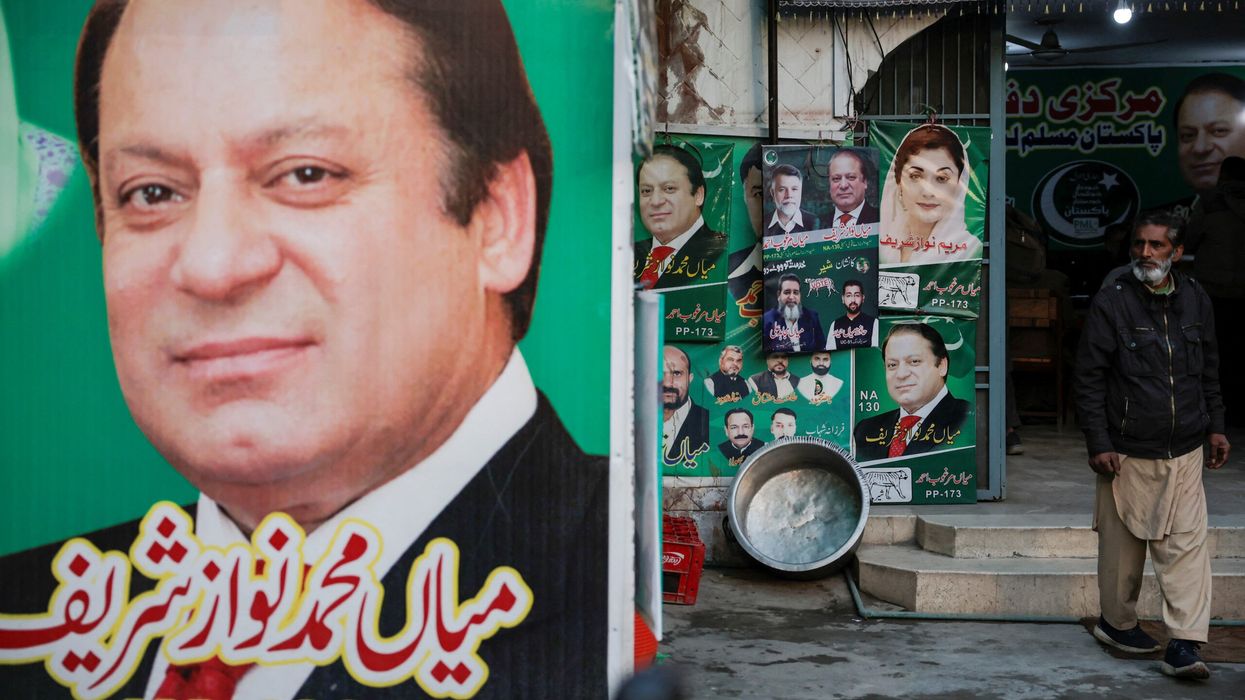As Pakistan goes to the polls on Thursday, concerns are being raised over the safety of the new app promoted by the election commission.
The Election Commission of Pakistan’s Election Management System (EMS) app is meant to swiftly transmit and tabulate election results, but some officials feel the software can be manipulated and may even impact the poll outcome.
The app will transmit results from each polling station to a centralised system, where tabulation of all results will be completed by the returning officers, who are in charge of preparing and releasing the result of each constituency.
The ECP is set to use the system on February 8 after claiming that the countrywide test run of EMS has been a “success”.
However, two election officials in Sindh province have pointed out faults in the EMS after the second test run last week. They have written letters to their superiors, conveying almost identical issues regarding the EMS.
Senator Taj Haider, in charge of the election cell of the Pakistan People’s Party, has also written to the ECP expressing concern about the possible misuse of EMS.
After the criticism and complaints, the ECP had to come out in defence of the EMS, which has become the subject of a growing controversy.
ECP Secretary Syed Asif Hussain ruled out any possibility of manipulation while addressing a press conference on Monday (5).
He said that the EMS would work even if the internet failed, as returning officers would still be able to compile all results offline. He said more than 60 ROs in remote areas had also been provided with satellite connectivity to keep them connected.
Reporters also posed similar questions to the project director of the ECP's Project Management Unit (PMU), Colonel Saad.
When asked about the possibility of the EMS being hacked and the results being manipulated to favour a specific political party, Saad said the system had all the security features of an international standard application and would run on a secure private network which would be accessible only to specific individuals on a pre-approved white list.
He further shared that the EMS had been tested five times at various levels, and minor glitches that were discovered had been addressed.
On the allegation that the system may be manipulated, Saad said he had spoken personally with the returning officer who suggested that somebody else might be controlling the system. “The problem faced by the RO has been resolved,” he said.
In response to a question, the project director said it was not possible to provide a specific timeframe for how long it may take to compile all results. He hoped, however, that all legal deadlines would be met and results would be completed by 10 am on the day after the elections (February 9).
Internet shutdowns
Pakistan’s interior minister Dr Gohar Ejaz has said that on the polling day internet shutdowns may happen only if any district or province makes such a request because of the security situation.
“So far, there has been no decision made regarding the suspension of internet services at any place. The caretaker government will consider shutting down the internet connections only if there is a request,” The News International newspaper said quoting Ejaz.
He was addressing a press conference along with the caretaker information minister Murtaza Solangi. Ejaz's announcement is important as just a day earlier, Solangi had turned down the possibility of an internet shutdown on February 8.
“Local administrations have the authority to decide on an internet shutdown in light of the law and order situation, however, no such situation has so far been reported,” Solangi had said on Monday (5).
Earlier on Sunday (4), caretaker Balochistan Information Minister Jan Achakzai announced that the internet service will remain temporarily restricted in the sensitive polling booths in the province on the polling day.
Ejaz said the government was making efforts to hold peaceful elections without any loss of lives. The interior minister said that the government will provide security in three layers – police, civil armed forces, and the army.
Political tensions have been high in the run-up to the election as former prime minister Imran Khan, the winner of the last national election, has been in jail since August.
With his party Pakistan Tehreek-e-Insaf being barred from contesting as a bloc, the field is open for the Pakistan Muslim League-Nawaz (PML-N) to win the most seats and give a fourth term as premier to its founder, Nawaz Sharif.
Islamist militancy is on the rise and relations with three neighbours - India, Afghanistan, and Iran - are frayed.
The country is also reeling from decades-high inflation and an economy that has come to a grinding halt as it navigates a tough International Monetary Fund bailout programme. (Agencies)




